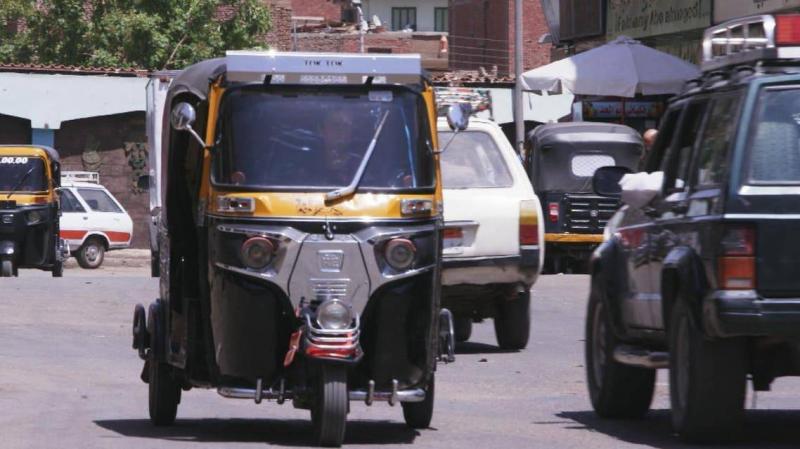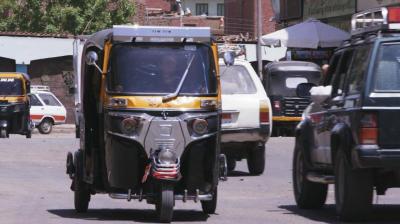The Egyptian government continues its efforts to tackle the large numbers of "Tuk-Tuks" filling the streets of Cairo and other provinces. Recently, the Ministry of Trade and Industry issued a decision to halt the import of the vehicles and their essential parts, indicating the government's intention to put an end to this "republic" that has spread and grown over several years. The government of Dr. Ahmed Nazif was the first to allow the import of "Tuk-Tuks," primarily to provide job opportunities for the youth. However, over time, this mode of transport has become a source of concern for the government and citizens.
Aside from the implications of "Tuk-Tuk" proliferation on the labor market and the resultant worker shortages, it has also contributed to an increase in crime rates, with this vehicle being used in various crimes, particularly robbery, theft, and assault. While the Egyptian government's decision may impact the vast number of "Tuk-Tuk" owners and drivers, it has announced plans to replace this vehicle with "Mini Van" cars, which are permitted to be licensed under Egyptian traffic law, unlike the "Tuk-Tuk," which the government has yet to regulate, despite its years in the market.
### Wasting 84 Billion Egyptian Pounds
Dr. Hamdi Arafa, a professor and local administration expert, views the "Tuk-Tuk" as akin to an informal economy, stating that the total income of the three million drivers amounts to 10.8 billion Egyptian pounds monthly. However, its lack of licensing and regulation as a means of transportation results in an approximate loss of 1.15 billion pounds, in addition to wasted traffic fines amounting to 1.65 billion pounds annually, which should have contributed to the state treasury.
In an interview with "Al Arabiya.net," he explained that this mode of transport has drained the labor market of workers and craftsmen, noting that there are nine Egyptian governorates that still refuse to license it. Studies indicate that 38% of "Tuk-Tuk" drivers are under the age of 18. He stated that since the introduction of "Tuk-Tuks" in Egypt, approximately 14 years ago, the lack of regulation has led to the loss of 84 billion pounds that should have entered the general treasury, but instead, all these amounts have gone to the owners and drivers.
Arafa emphasized the necessity of licensing these vehicles and regulating their status to safeguard citizens' lives and suggested that no new "Tuk-Tuk" should be sold unless licensed by traffic departments. He proposed a joint plan between the traffic sector and the Ministry of Trade and Industry to compel violators to adhere to licensing requirements.
### Disruption for "GB Auto"
Following the Ministry of Trade and Industry's decision to halt the import of essential components for these vehicles, "GB Auto" announced that it is seeking an alternative plan, as the decision threatens its three-wheeled motorcycle sector. The company stated that it has begun formulating strategies and alternative solutions to mitigate the expected revenue shortfall.
While the company did not disclose the revenue from the three-wheeled vehicle sector in its most recent financial results, it mentioned that it generated 1.8 billion pounds from motorcycles and three-wheeled vehicles during the first half of 2021, which represents approximately 16% of its total automotive revenue during that period.
GB Auto sold about 37,000 three-wheeled motorcycles from January to June, marking a 47% increase compared to the same period in 2020 when it sold around 30,600 motorcycles. However, GB Auto has a stock of "Tuk-Tuks" that will last between three to six months, allowing it some time to soften the impact while searching for alternatives.




